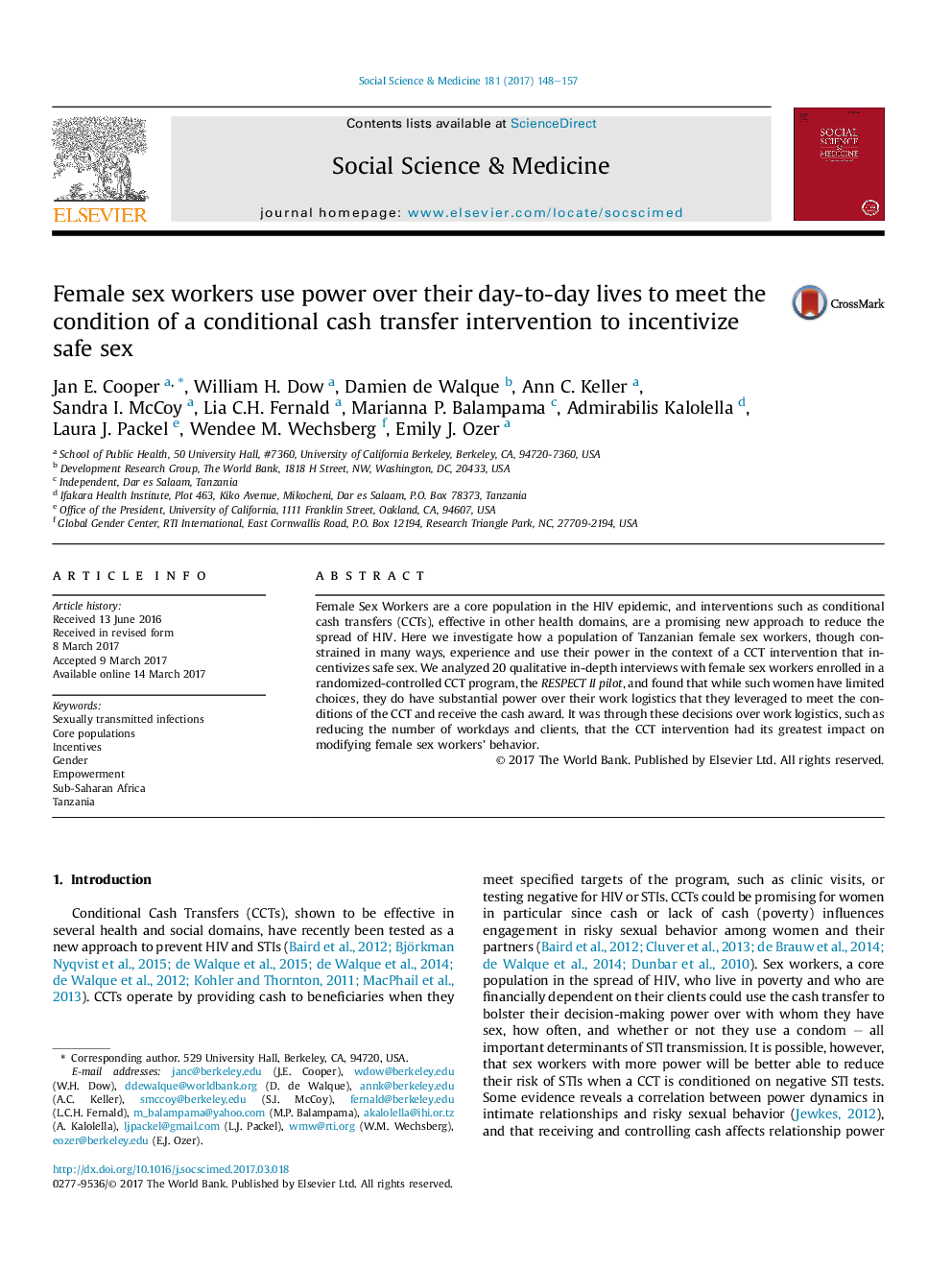| Article ID | Journal | Published Year | Pages | File Type |
|---|---|---|---|---|
| 5046608 | Social Science & Medicine | 2017 | 10 Pages |
â¢We propose novel conceptual categories to classify power among sex workers.â¢Sex workers had most control over logistics: when, where, and for whom to work.â¢The CCT had its greatest impact by modifying sex workers' choices of work logistics.â¢Current sex worker interventions target control over condoms to promote health.â¢Leveraging sex worker's control over logistics is a promising new approach.
Female Sex Workers are a core population in the HIV epidemic, and interventions such as conditional cash transfers (CCTs), effective in other health domains, are a promising new approach to reduce the spread of HIV. Here we investigate how a population of Tanzanian female sex workers, though constrained in many ways, experience and use their power in the context of a CCT intervention that incentivizes safe sex. We analyzed 20 qualitative in-depth interviews with female sex workers enrolled in a randomized-controlled CCT program, the RESPECT II pilot, and found that while such women have limited choices, they do have substantial power over their work logistics that they leveraged to meet the conditions of the CCT and receive the cash award. It was through these decisions over work logistics, such as reducing the number of workdays and clients, that the CCT intervention had its greatest impact on modifying female sex workers' behavior.
